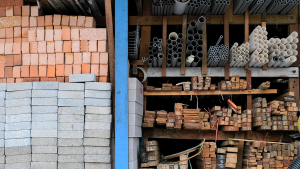Industrial growth will make up for a slowdown or “upheaval” of activity in commercial and residential building sectors in Canada, according to Export Development Canada’s (EDC) chief economist.
It is not normal for one sector to fill the void when other sectors are “fundamentally weak. We rarely see this,” Peter Hall told a seminar audience recently at the 18th annual Ontario Construction Secretariat’s (OCS) State of the Industry and Outlook Conference in Toronto.
But these are not normal times.
“The industrial capabilities together with world growth and our capacity to fill that going forward with high-value contributions to the supply chains of the rest of the world are what I believe will carry us forward over the next number of years,” he said.
“And it is already occurring.”
Markets are diversifying and growth is taking off in emerging industrial markets, he said.
Hall told OCS delegates he believes there are three to eight more years of growth ahead for Canada.
But not everything is rosy. He challenged economic prognostications that residential construction’s high growth is a “new normal.”
“I am in the camp that says, ‘Yes, we do have a housing bubble,’ ” he said.
Canada’s rate of consumer indebtedness, 170 per cent, is higher than the debt to income ratio in the U.S. just before its 2008 recession, he told delegates.
“But that is only part of the story,” he explained. “Normally, when we get an economic correction it happens on all fronts.”
In the Greater Toronto Area’s non-residential building sector “over the next number of quarters things are looking pretty exciting,” Hall said.
“The greatest news I can give you today is that the global economic cycle is getting back on its feet again.”
He says Canada is in a “stretched out business cycle,” which is part of a global economic cycle, rather than the traditional business cycle of the North American economy.
“We now have longer longs, higher highs…lower lows,” he said.
As an example, he points to the last growth cycle of the world, from the early 1990s to 2008, which was “twice as long” as a traditional business cycle lasts.
“We are living in world now that is not a slow-growth new normal that everybody is sort of conditioned to believe in,” said Hall.
He dismissed forecasts by many economists that the next step in the business cycle is a global recession.
Hall said the world’s economy, including the U.S., is up more than it has been in a decade since the recession, and it won’t be heading into a tailspin anytime soon.
Many European countries are operating under-capacity, he added.
His takeaway to Canada’s building and design community: “We should be looking with our capacity at what we can service there.”
He called millennials “first-wave consumers” preparing over the next five years to make major purchases as their income grows.
That includes buying cars, their first house and “first everything” to fill that house.
“All of a sudden you have a new engine in your economy,” he said.
And it is not just happening in Canada.
He pointed out many countries are witnessing the growth of their middle class.
Brazil is adding five million people annually, Indonesia seven million, India 20 million and China 36 million.
“The world is firing up,” he stated.
He said if Canada’s trading relationships grow exponentially with countries like China in the next 16 years, as EDC projections indicate, then there will be “a lot of building happening” in Canada’s industrial sector.
While President Donald Trump has taken a hard line on U.S. trading partners and has suggested pulling the rug out from under NAFTA, Hall said Americans have a number of sound reasons to preserve the agreement, starting with the fact three million American jobs depend directly on trade with Mexico and Canada.











Recent Comments
comments for this post are closed